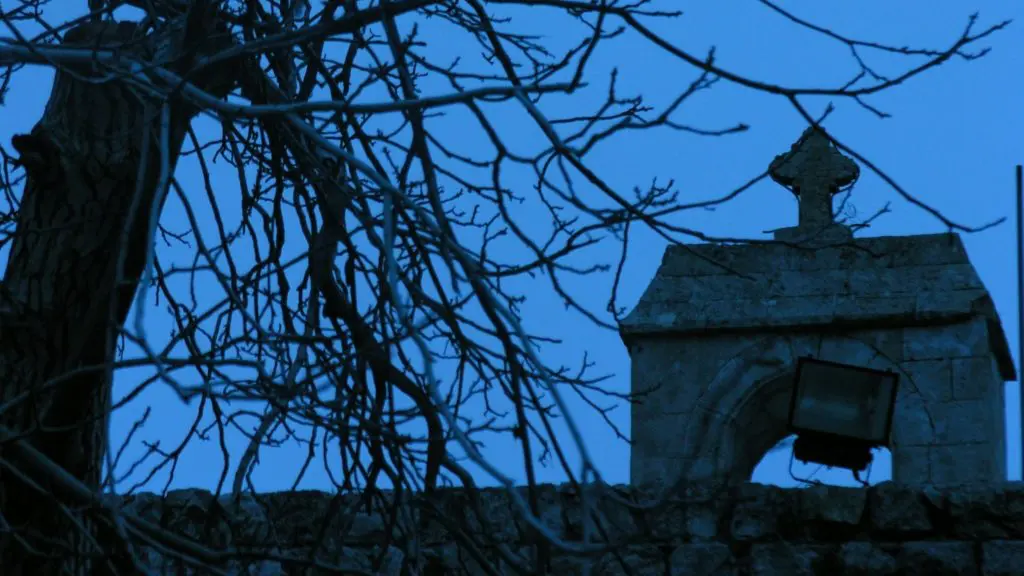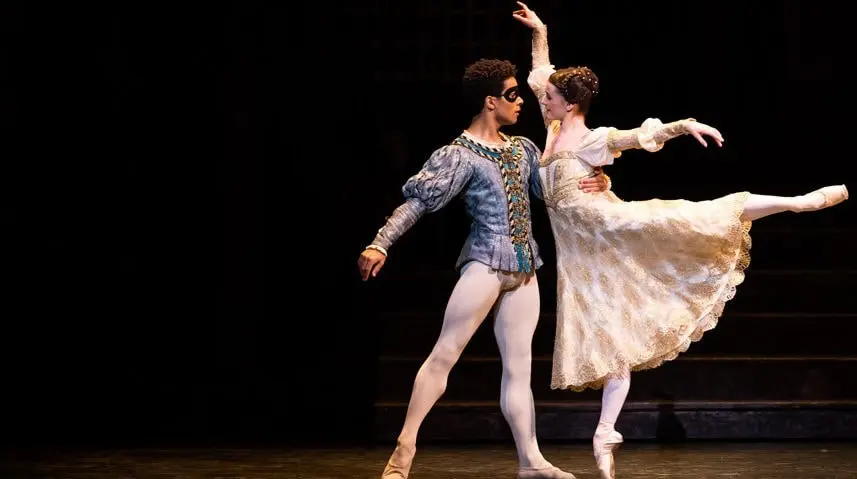“Well, pretty soon, I guess,” said the conspicuously unmasked billionaire philanthropist, David M. Rubenstein, when I asked him when Washington’s John F. Kennedy Center for the Performing Arts, which he chairs, will finally lift its mask mandate for performances. Separately, I was more reassuringly told that vaccination cards would no longer be required as of the day following this premiere of Washington National Opera’s new production of Georges Bizet’s Carmen, which opened as part of the company’s sumptuous annual gala, held on May 14.
Historically, Washington’s Opera Ball was held off-season, usually in early June, at a foreign embassy and without a staged performance. COVID-19 pandemic conditions altered last year’s party to an intimate and very elegant concert at the Kennedy Center’s Opera House. The audience was seated on the stage facing out into the hall, with the performers offering their selections backward, as it were. Drinks and hors d’oeuvres were served afterward in the foyer in boxes to avoid whatever contagion could have been carried by dishes being passed. This year the gala was combined with Washington National’s first fully staged performance in the Opera House since March 2020—earlier productions this season were staged in the Kennedy Center’s Eisenhower Theater, mainly a drama venue. It made for a long evening. Cocktails started on the Kennedy Center rooftop terrace at 5:30 for a 7:00 p.m. curtain, with speeches preceding both halves of the performance. Afterward, in the Kennedy Center’s new REACH annex, a sumptuous Spanish buffet dinner was served with an R&B orchestra, flamenco dancers, and a visit from the opera artists. Unusually for Washington, the evening continued long after midnight.
No one seemed to mind the length, even if it meant appearing in black tie before 6:00 p.m. The U.S. capital’s great, good, and not-so-good were out in force and ready to schmooze. Nineteen foreign ambassadors were said to be in attendance. Old Green Book-listed denizens rubbed elbows with ambitious newcomers. All sorts of political and diplomatic subjects were heatedly discussed. The parties that bracketed the opera were themselves performances of excellent quality.
Washington’s artistic director Francesca Zambello scored a success with her new production. One of the challenges of Carmen is to make it at least look like something other than all other productions of that opera. This is a hard task given Carmen’s gypsy singers and clichéd espagnolerie. It should be remembered, after all, that Bizet, who died young at the age of 36, never actually visited Spain but imbibed its more outlandish cultural artifacts second-hand, in the mid-19th century Paris he inhabited. Zambello did what all good directors should do—she delved into the libretto to find inspiration, liberally cutting dialogue, perhaps to conserve time. Even the mundane opening lines, which depict street life in Seville, came alive with people not just coming and going in the banal promenade usually seen, but engaging in the activities typical of that enchanted place at the opera’s traditional time. In the shadow of a magnificent orange tree, a priest offers benedictions, children play hoop games, and merchants hawk wares. This sense was a powerful contrast to the production’s central structure, which is present in all acts—a curved beige wall with a door that allows both for Carmen’s dramatic entrance in Act I and for her murderous, jilted lover Don José’s malign appearance at the very end of the opera. The production was also enhanced by a gorgeous white steed—commercially available for riding in a Maryland suburb, we were told—that allowed for the toreador Escamillo’s entrance and that later brought Carmen to his bullfight, where she meets her end.
The musical event of the evening was the title role debut of the sultry American mezzo-soprano Isabel Leonard. Easily in the prime of her career, she is adding role after role; none, however, seems so perfectly matched to her vocal and dramatic talents as Carmen. She has essayed the part’s famous “Habanera” and other selections in concert. Throughout the evening, she maintained a superb stamina, deployed a smoky legato, and radiated an irresistible charisma. Apart from a couple of squeaky high notes—including on the central declamation “Liberté!”—she carried off the part as a musical and dramatic wonder. The portrayal was commendably human in a world that often also demands some kind of ideology to peer out from the character. Zambello believes Carmen is “the ultimate feminist”—but if that is what she was out to reduce Leonard’s character to, she totally failed, and we are the richer for it.
Leonard’s engrossing Carmen could have done with a more passionate partner on stage. In his Washington National debut, tenor Michael Fabiano sang with solid professional competency, but it was anyone’s guess how invested in the romance his character truly was. In some moments he seemed to be going through the motions, while in others he would fly into rages that erupted inexplicably. The love duets and central aria, “La fleur que tu m’avais jetée,” were pedestrian. His challenge to Escamillo came in a full-on lunge with a knife that seemed to come from no internal processing of his character’s fraught emotions.
Ryan Speedo Green’s earthier Escamillo set a finer balance. He appeared in solo concert with Washington’s premiere company as the winner of its Marian Anderson Award a few seasons ago, but this was his stage performance debut here. His celebrated entrance, “Votre toast,” begun on horseback, carried off the part’s insouciance, while his more impassioned scenes got him deeper into the complications of Carmen and her wiles. Speedo, as he is often known, has lost a noticeable amount of weight during the lengthy pandemic interim, and one might wonder whether he could have given a more solid performance with his former heft. But he sang well and intelligently enough to capture the part.
A strong supporting cast added splendor to the evening. Soprano Vanessa Vasquez contributed a splendid Micaëla, moving and plangent in her failed attempts to rescue Don José from Carmen’s exotic allure. Bass Kevin Short was an authoritatively hapless Zuniga, José’s commanding officer. Duke Kim and Kyle Miller––the latter in his company debut–were a fiendishly entertaining duo as the thieves Le Remendado and Le Dancaïre. Suzannah Waddington and Hannah Shea–also in her Washington debut—gave convincing performances as Carmen’s friends Frasquita and Mercédès. Washington’s principal conductor Evan Rogister started a promising performance with a brio reading of the opera’s famous overture. He moderated his pace through the remainder of the performance, often lingering delightfully on the intimate moments but sometimes slowing down the drama. Fight director Casey Kaleba should be applauded for staging daredevil challenges of the blade, the first of which marked the tobacco factory fight in which Carmen makes her entrance and the last of which ends with her gutting by Don José. “You were magnificent and pretty good in a knife fight,” I complimented Isabel Leonard after the performance, adding, “Well, at least up until the end.”





